MolluscaBase taxon details
Macoma balthica (Linnaeus, 1758)
141579 (urn:lsid:marinespecies.org:taxname:141579)
page(s): 677 [details] Available for editors
of the shell. The...
of the shell. The back is slightly acuminate. The shell surface is smooth with very fine concentric
growth lines. Its colour varies: white, yellow, orange to reddish. They burrow shallowly in fine, muddy sand bottoms and feed on food particles located on top of the sediment that they manage to suck up by means of their very long, individually separated stretchable siphons. [details]
Distribution M. balthica occurs from the upper part of the intertidal down to the shallow subtidal zone. In the study area it is...
Distribution Macoma balthica typically occurs in the coastal zone of the Belgian part of the North Sea. In the 1976-1986 period only low...
Distribution Arctic seas to off Georgia
![]() The webpage text is licensed under a Creative Commons Attribution 4.0 License
The webpage text is licensed under a Creative Commons Attribution 4.0 License
page(s): 677 [details] Available for editors
original description (of Venus fragilis O. Fabricius, 1780) Fabricius, O. (1780). Fauna Groenlandica, systematice sistens animalia groenlandiae occidentalis hactenus indagata, quoad nomen specificium, triviale, vernaculumque, synonyma auctorum plurimum, descriptionem, locum, victum, generationem, mores, usum capturamque singuli, pro ut detegendi occasio fuit, maximaque parte secundum proprias observationes. <em>Hafniae [= Copenhagen] & Lipsiae [= Leipzig], Ioannis Gottlob Rothe.</em> xvi + 452 pp., 1 pl., available online at https://www.biodiversitylibrary.org/page/13442285
page(s): p. 413. [details]
original description (of Tellina balthica var. attenuata Jeffreys, 1864) Jeffreys, J. G. (1862-1869). <i>British conchology</i>. Vol. 1: pp. cxiv + 341 [1862]. Vol. 2: pp. 479 [1864]. Vol. 3: pp. 394 [1865]. Vol. 4: pp. 487 [1867]. Vol. 5: pp. 259 [1869]. London, van Voorst. , available online at http://www.biodiversitylibrary.org/item/55187
page(s): vol. 2, p. 376 [details]
original description (of Tellina rubra da Costa, 1778) Da Costa, E. M. (1778). <i>Historia naturalis testaceorum Britanniæ, or, the British conchology</i>; containing the descriptions and other particulars of natural history of the shells of Great Britain and Ireland: illustrated with figures. In English and French. - Historia naturalis testaceorum Britanniæ, ou, la conchologie Britannique; contenant les descriptions & autres particularités d'histoire naturelle des coquilles de la Grande Bretagne & de l'Irlande: avec figures en taille douce. En anglois & françois. i-xii, 1-254, i-vii, [1], Pl. I-XVII. London. (Millan, White, Emsley & Robson). , available online at https://www.biodiversitylibrary.org/page/13116783
page(s): 211-212; pl. 12 fig. 4 [details]
original description (of Tellina inconspicua Broderip & G. B. Sowerby I, 1829) Broderip, W. J. & Sowerby, G. B. I. (1829). Observations on new or interesting Mollusca contained, for the most part, in the Museum of the Zoological Society. <em>Zoological Journal.</em> 4: 359-379, pl. 9. [January]., available online at http://biodiversitylibrary.org/page/27485275
page(s): 363 [details]
original description (of Tellina neustriaca Locard, 1886) Locard, A. (1886). <i>Prodrome de malacologie française. Catalogue général des mollusques vivants de France. Mollusques marins</i>. Lyon: H. Georg & Paris: Baillière. x + 778 pp. , available online at https://www.biodiversitylibrary.org/page/10831012
page(s): 424, 594 [details]
original description (of Tellina solidula f. normalis Middendorff, 1851) Middendorff, A. T. von. (1851). Mollusken, pp. 163-464, pls. 8-30. - <i>In</i>: Brandt, F., Erichson, W. F., Fischer, S., Grube, E., Ménétriés, E. & Middendorff, A. T. von: Reise in den äussersten Norden und Osten Sibiriens während der Jahre 1843 und 1844. Band II. Zoologie. Theil 1. Wirbellose Thiere: Annulaten. Echinodermen. Insecten. Krebse. Mollusken. Parasiten. St. Petersburg: Buchdruckerei der Kaiserlichen Akademie der Wissenschaften, 516 pp., 32 pls. , available online at http://biodiversitylibrary.org/page/37047707
page(s): 262 [details]
original description (of Tellina solidula Pulteney, 1799) Pulteney, R. (1799). Catalogue of the birds, shells, and some of the more rare plants of Dorsetshire. London, Nichols, 92 pp.
page(s): 29 [details]
original description (of Limecola solidula T. Brown, 1844) Brown T. (1844). <i>Illustrations of the Recent Conchology of Great Britain and Ireland, with the description and localities of all the species, marine, land, and fresh water</i>. Ed. 2. London: Smith, Elder & Co. <em>Drawn and Coloured from Nature. Second Edition, Greatly Enlarged.</em> , available online at https://www.biodiversitylibrary.org/page/10921172
page(s): 101 [details]
original description (of Tellina balthica var. nivea Jeffreys, 1864) Jeffreys, J. G. (1862-1869). <i>British conchology</i>. Vol. 1: pp. cxiv + 341 [1862]. Vol. 2: pp. 479 [1864]. Vol. 3: pp. 394 [1865]. Vol. 4: pp. 487 [1867]. Vol. 5: pp. 259 [1869]. London, van Voorst. , available online at http://www.biodiversitylibrary.org/item/55187
page(s): vol. 2, p. 376 [details]
context source (Schelde) Maris, T.; Beauchard, O.; Van Damme, S.; Van den Bergh, E.; Wijnhoven, S.; Meire, P. (2013). Referentiematrices en Ecotoopoppervlaktes Annex bij de Evaluatiemethodiek Schelde-estuarium Studie naar “Ecotoopoppervlaktes en intactness index”. <em>Monitor Taskforce Publication Series, 2013-01. NIOZ: Yerseke.</em> 35 pp. (look up in IMIS) [details]
basis of record Gofas, S.; Le Renard, J.; Bouchet, P. (2001). Mollusca. in: Costello, M.J. et al. (eds), European Register of Marine Species: a check-list of the marine species in Europe and a bibliography of guides to their identification. <em>Patrimoines Naturels.</em> 50: 180-213., available online at http://www.vliz.be/imisdocs/publications/ocrd/254404.pdf [details]
additional source Abbott, R. T. (1974). <i>American seashells. The marine Mollusca of the Atlantic and Pacific coast of North America</i>. ed. 2. Van Nostrand, New York. 663 pp., 24 pls. [October 1974]. (look up in IMIS) [details]
additional source Bachelet G. (1980). Growth and recruitment of the tellinid bivalve <i>Macoma balthica</i> at the southern limit of its geographical distribution, the Gironde estuary (SW France). <em>Marine Biology.</em> 59(2): 105–117. [details]
additional source Gilbert, M. A. (1978). Aspects of the reproductive cycle in <i>Macoma balthica</i> (Bivalvia). <em>The Nautilus.</em> 92(1): 21-24., available online at https://www.biodiversitylibrary.org/page/8273949 [details]
 Present
Present  Inaccurate
Inaccurate  Introduced: alien
Introduced: alien  Containing type locality
Containing type locality
The bivalve lives buried below the surface, maintaining contact with the overlying water by means of the inhalant and exhalant siphons (Brafield & Newell, 1961; Fish & Fish, 1989). M. balthica is capable of deposit as well as suspension feeding (Brafield & Newell, 1961; Wolff, 1973; Fish & Fish, 1989). M. balthica is able to withstand low winter temperatures. In the Dutch Wadden Sea its abundance increases after cold winters (Beukema, 1979; Beukema & Essink, 1986).
The species is an important prey item for birds such as the knot (Zwarts & Blomert, 1992; Zwarts et al., 1992). [details]
Description A rather thick, broadly oval shell up to 30 mm long. The top of the shell is somewhere in the middle
of the shell. The back is slightly acuminate. The shell surface is smooth with very fine concentric
growth lines. Its colour varies: white, yellow, orange to reddish. They burrow shallowly in fine, muddy sand bottoms and feed on food particles located on top of the sediment that they manage to suck up by means of their very long, individually separated stretchable siphons. [details]
Dimensions reaches 1.5 to 3.5 cm in size [details]
Distribution M. balthica occurs from the upper part of the intertidal down to the shallow subtidal zone. In the study area it is confined to the Wadden Sea, the Delta estuaries and a narrow zone along the coast. It has not been recorded from depths over 25 m in the open North Sea. The highest biomasses are found along the Dutch coast and north of Ameland and Schiermonnikoog. [details]
Distribution Macoma balthica typically occurs in the coastal zone of the Belgian part of the North Sea. In the 1976-1986 period only low densities were observed (up to 10 ind./m2) whereas densities up to 170 ind./m2 were found in the 1994-2001 period. In this period the highest densities seemed to occur near the eastern coastal zone. [details]
Distribution Arctic seas to off Georgia [details]
Habitat Known from seamounts and knolls [details]
Habitat M. balthica occurs in muddy sediments with a preference for relatively high silt-clay percentages. [details]
Habitat intertidal, bathyal, infralittoral and circalittoral of the Gulf and estuary [details]
Habitat Macoma balthica tends to prefer very fine sediments (median grain size < 200 μm) with high mud contents (> 20%). The maximum relative occurrence (80%!) is reached in sediments with a median grain size of 0-50 μm and a mud content of 50-60%. [details]
Morphology M. balthica has a broadly oval shell, somewhat inflated anteriorly. lt is up to 25 mm in length. The shell surface is smooth, sculptured with very fine concentric lines. The growth stages are clearly visible, usually marked by bands of colour. lt is very variable in colour, with shades of white, yellow, pink or purple, often drawn out in concentric bands. The interior of the shell is white or purple, or a shade of the external colour (Tebble, 1966; Fish & Fish, 1989; Hayward & Ryland, 1990). [details]
Reproduction separate sexes, usually not dimorphic in shell structure; fertilization occurs within the mantle cavity anf young hatch as pelagic larvae (generalized for group) [details]
Spelling often spelled M. baltica [details]
| Language | Name | |
|---|---|---|
| Danish | østersømusling | [details] |
| Dutch | nonnetjegewoon nonnetje | [details] |
| English | Baltic tellinBaltic macoma | [details] |
| French | telline Baltiquepetit macoma | [details] |
| German | rote BohnePlattmuschelBaltische TellmuschelBaltische Plattmuschel | [details] |
| Norwegian Bokmål | østersjøskjell | [details] |
| Norwegian Nynorsk | østersjøskjel | [details] |
| Polish | rogowiec bałtycki | [details] |
| Swedish | östersjömussla | [details] |
Encyclopedia of Marine Life of Britain and Ireland
Marine Life Information Network - UK
To Barcode of Life (135 barcodes) (from synonym Limecola balthica (Linnaeus, 1758))
To Barcode of Life (16 barcodes)
To Biodiversity Heritage Library (146 publications) (from synonym Tellina balthica Linnaeus, 1758)
To Biodiversity Heritage Library (176 publications)
To Biodiversity Heritage Library (264 publications) (from synonym Tellina solidula Pulteney, 1799)
To Biodiversity Heritage Library (56 publications) (from synonym Macoma inconspicua (Broderip & G. B. Sowerby I, 1829))
To Dyntaxa
To European Nucleotide Archive, ENA (Macoma balthica)
To GenBank (858 nucleotides; 933 proteins)
To GenBank (858 nucleotides; 933 proteins) (from synonym Tellina balthica Linnaeus, 1758)
To GenBank (858 nucleotides; 933 proteins) (from synonym Limecola balthica (Linnaeus, 1758))
To Global Biotic Interactions (GloBI)
To Malacopics (Macoma balthica (Linnaeus, 1758) Canada, British Columbia, Vancouver, at .5-.15 m d...
To Malacopics (Macoma balthica (Linnaeus, 1758) Finland, Satakunta, Pori, Yyteri, beached, collect...
To Malacopics (Macoma balthica (Linnaeus, 1758) Netherlands, Friesland, Terschelling, beachmarker ...
To Malacopics (Macoma balthica (Linnaeus, 1758) Netherlands, Friesland, Terschelling, beachmarker ...
To Malacopics (Macoma balthica (Linnaeus, 1758))
To Marine Bivalves of the British Isles webpage at National Museum of Wales
To PESI
To PESI (from synonym Tellina solidula Pulteney, 1799)
To PESI (from synonym Tellina zonata Gmelin, 1791, sensu Dillwyn, 1817)
To PESI (from synonym Tellina solidula f. normalis Middendorff, 1851)
To PESI (from synonym Tellina balthica Linnaeus, 1758)
To PESI (from synonym Tellina carnaria Linnaeus, 1758 sensu Pennant, 1777)
To PESI (from synonym Tellina rubra da Costa, 1778)
To PESI (from synonym Tellina inconspicua Broderip & G. B. Sowerby I, 1829)
To PESI (from synonym Tellina neustriaca Locard, 1886)
To USNM Invertebrate Zoology Mollusca Collection (from synonym Macoma inconspicua (Broderip & G. B. Sowerby I, 1829))
To USNM Invertebrate Zoology Mollusca Collection
To USNM Invertebrate Zoology Mollusca Collection (from synonym Tellina balthica Linnaeus, 1758)
To USNM Invertebrate Zoology Mollusca Collection (from synonym Tellina balthica Linnaeus, 1758)
To ITIS



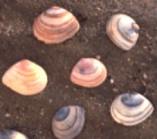
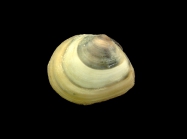
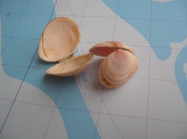
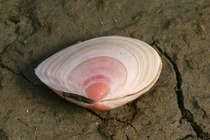
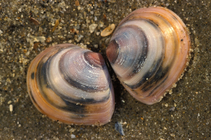
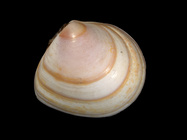
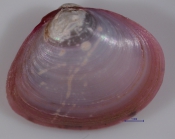
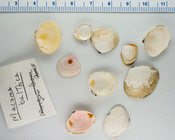
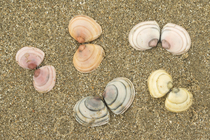
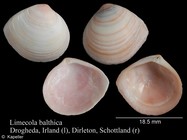
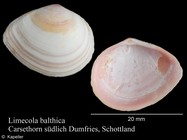
.jpg)
.jpg)
.jpg)

.jpg)